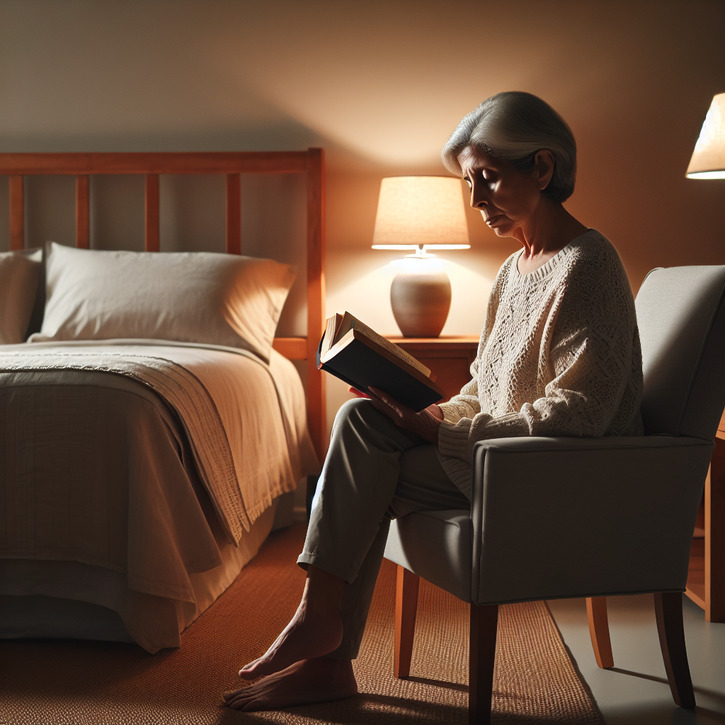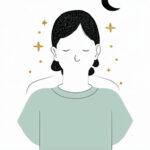Sleep Issues in Elderly: Causes, Effects, and Solutions

Sleep Issues in the Elderly: Unpacking the Causes, Effects, and What You Can Do
Getting a Handle on Sleep Troubles in Later Life
So, What Exactly Are Sleep Issues?
When we mention "sleep issues" in older adults, we're really talking about a whole mess of challenges that can keep someone from enjoying a peaceful, uninterrupted night of sleep. It might be that falling asleep feels like an uphill battle, interruptions zooming in the middle of the night, or simply waking way too early. Many seniors notice that as the years roll on, their sleep patterns seem to shift in odd ways. While the occasional restless night isn't a huge red flag, consistent sleep disruptions definitely call for some extra attention. Whether it's grappling with insomnia or dealing with a night full of startles and wake-ups, these challenges can seriously throw off daily routines and overall quality of life. Noticing these changes early is the first step in nudging things back on track.
How Common Are These Sleep Issues Anyway?
Research shows that sleep struggles are pretty much a common theme among the elderly—nearly half of older individuals report some sort of sleep hiccup. Often, these issues get written off as just part of the aging process, even though they may actually be fixable or manageable. Luckily, there's growing awareness among healthcare professionals about the true extent and underlying causes of these sleep disturbances. Routine sleep studies and surveys have helped flip the script from “it’s just aging” to recognizing that these problems deserve a closer look for both immediate well-being and long-term health.
Why Bother Addressing Sleep Issues?
It’s not just about the luxury of a good night’s sleep. High-quality sleep is a cornerstone of overall well-being—it keeps our minds sharp, moods balanced, and our bodies functioning smoothly. When sleep is off-kilter, it can kick off a domino effect of health issues that make daily tasks feel harder and quality of life take a nosedive. In the long run, persistent sleep problems might even pave the way for more severe complications like heart disease or a decline in brain function. That's why tuning in to our sleep and tackling these challenges head-on is so crucial—it fuels a healthier, happier aging journey.
Main Culprits Behind Sleep Problems in the Elderly
Medical Conditions That Play a Part
There’s no shortage of medical conditions that can throw a wrench in an older adult's sleep routine. Issues like arthritis, chronic pain, respiratory troubles, and heart disease can dramatically disrupt sleep quality. Imagine trying to rest when joint pain keeps you tossing and turning, or when you're gasping for breath due to respiratory challenges—the result is often a night filled with restless wake-ups. And it’s not just the physical discomfort; the mental toll of always being on edge before bedtime can make it even harder to drift off. Getting a handle on these conditions—whether by tweaking medications or exploring alternative treatments—often paves the way for improvements in sleep.
How Medications Might Be Sabotaging Sleep
Sometimes, the very pills that help manage health issues in older adults end up being a double-edged sword by messing with sleep. Medications for heart conditions, depression, or anxiety, for example, might inadvertently stir up sleep disturbances by interfering with the brain’s natural sleep-regulating chemicals. In some cases, the stimulant side effects of these drugs are enough to keep someone wide awake when they should be winding down. That's why it's super important for caregivers and healthcare providers to regularly review and adjust these medications. A little fine-tuning can go a long way in managing health without sacrificing that all-important, restorative sleep.
The Broad Impact of Sleep Problems on Overall Health
When Sleep Takes a Toll on Your Brain
Sleep is like fuel for our brains. For older adults, compromised sleep can sap concentration, muddle memory, and generally put a damper on cognitive abilities. There’s even research linking chronic sleep deprivation to early signs of cognitive decline. Without enough quality sleep, seniors might struggle with processing daily information or recalling important details, which can chip away at their independence. The potential connection between long-term sleep issues and conditions like dementia makes addressing sleep problems an urgent matter. When sleep quality improves, there’s often a noticeable jump in mental sharpness—a real game-changer for handling everyday tasks.
Physical Health: More Than Just a Nap
Poor sleep isn’t just about feeling tired—it can seriously undermine physical health, too. Chronic sleep issues can weaken the immune system, making it easier for the body to fend off infections. There’s also a strong link between sleep problems and higher risks of heart disease, hypertension, and complications related to diabetes. Our bodies need sleep to repair tissues, balance hormones, and run on all cylinders, so even small, persistent disturbances can ripple out into bigger health issues. Tackling sleep challenges, therefore, isn’t just about better nights—it’s about staving off a host of potential health setbacks down the road.
How Sleep Woes Affect Emotional Well-Being
We can’t overlook the emotional side of sleep troubles. When sleep quality dips, irritability, mood swings, and overall emotional fatigue often follow in its wake. Over time, a lack of quality sleep can fuel feelings of anxiety or even lead to depressive moods, making it hard for seniors to enjoy their day-to-day lives. Just picture being constantly drained and unable to shake off that cloud of fatigue—it’s a reality for many older adults. Fortunately, addressing these issues holistically can help restore not just restful sleep but an overall brighter, more balanced outlook.
Diagnosing Sleep Issues in Older Adults
How Sleep Studies Can Shed Light
Diagnosing sleep problems is the first major step towards a solution. Sleep studies, whether done in a specialized center or through at-home assessments, offer a deep dive into sleep patterns, breathing rhythms, and overall restfulness. These evaluations are key to spotting disorders like sleep apnea or restless leg syndrome. With simple tests that monitor brain waves, oxygen levels, and heart rate, healthcare providers gain invaluable insights into what might be keeping someone awake. Thanks to advances in sleep diagnostics, customized treatment strategies have become more accessible than ever, promising a better quality of life for many seniors.
The Value of a Good Chat with Your Healthcare Provider
When sleep issues stick around, a conversation with a trusted healthcare provider is a must. By diving into a patient’s full medical history, current medications, and lifestyle habits, these professionals can unravel the mystery behind stubborn sleep disturbances. This open dialogue not only clarifies what might be going wrong but also arms seniors and their loved ones with tailored, actionable advice. A specialist’s insights can be incredibly reassuring and are central to forming an effective, individualized treatment plan that respects the unique challenges of aging.
Smart Strategies for Managing Sleep Challenges
Using Behavioral Therapies to Reclaim Sleep
Behavioral therapies—think cognitive-behavioral therapy for insomnia (CBT-I)—have really come into their own as effective treatments for sleep woes in older adults. These approaches help rewire detrimental sleep habits and challenge negative thoughts that keep sleep at bay. Seniors who stick to consistent sleep schedules and adopt calming pre-bedtime rituals often see noticeable improvements over time. What’s great about these therapies is their flexibility: they’re molded to meet each individual’s needs, offering genuine support and realistic progress. In many cases, CBT-I empowers seniors to take charge of their sleep, forming a natural, drug-free route to better rest.
When Medications Can Lend a Helping Hand
Sometimes, the quick fix comes in the form of medication. Prescription treatments designed to combat insomnia or other sleep disorders can help regulate sleep patterns in the short term. That said, caution is key—many elderly patients are already juggling several medications, so it’s important to watch out for potential side effects or drug interactions. Typically, these medications are used just long enough to kickstart a better sleep cycle, with doctors aiming to support natural sleep rather than create a crutch. Regular check-ins with a healthcare provider ensure that any pharmacological approach is both safe and effective.
Exploring Non-Medication Options
Beyond drugs, there are plenty of non-pharmacological tricks up the sleeve when it comes to beating sleep issues. Techniques like mindfulness training, yoga, and simple relaxation exercises before bed can work wonders by lowering stress and setting a calm mood for sleep. Some older adults also find natural supplements or aromatherapy to be effective allies. Tailored to fit individual needs, these methods often complement diet modifications and other lifestyle tweaks, offering a holistic path to improved sleep without relying solely on medicines.
Preventing Sleep Problems Before They Start
The Power of Good Sleep Hygiene
Creating an environment that naturally promotes sleep is one of the most challenging yet rewarding strategies. Think of it as setting the stage for a perfect night’s rest: a cool, dark, and quiet bedroom makes all the difference. Sticking to a consistent sleep-wake schedule, even on weekends, helps to firm up the body’s internal clock. Over time, these small but steady changes can lead to significant improvements in mood and overall health. The key is consistency: those little, regular routines often pay off big time when it comes to a restful night.
Simple Lifestyle Changes That Make a Big Impact
Adjusting daily habits can do wonders for sleep, too. Regular physical activity—just not too close to bedtime—helps keep your sleep-wake cycle in check. Diet matters as well: balanced meals and avoiding heavy snacks late in the day can set the stage for better sleep. Engaging in calming activities, like reading or listening to soft music, signals to your body that it’s time to unwind. Reducing stress through social interactions and moderating caffeine can also help calm the mind as night approaches. These seemingly small lifestyle tweaks can add up, forming the backbone of a robust approach to managing sleep problems.
Cutting-Edge Solutions and Future Directions
How Tech Is Helping Monitor Sleep
We live in a tech-savvy age, and that means innovative tools are now available to keep track of sleep. Today’s gadgets can monitor everything from sleep cycles and heart rate to even oxygen levels, giving older adults a clear picture of what happens overnight. This data isn’t just interesting—it’s actionable, letting healthcare providers craft more personalized treatment plans. Many seniors find that having these insights really motivates them to stick to better sleep routines, blending modern technology with tried-and-true methods for a full-circle approach to sleep health.
New Therapies and Research on the Horizon
Exciting research continues to push the boundaries of how we tackle sleep issues in the elderly. From light therapy and melatonin regulation to cutting-edge personalized treatment plans powered by artificial intelligence, new methods are emerging that not only address the symptoms but also dig deeper into the root causes. With ongoing innovations, the future looks bright for developing less invasive, more effective solutions. Researchers around the globe are working hard to ensure that every older adult can look forward to better nights and brighter days.
Wrapping It Up
Sleep issues among older adults aren’t just a one-dimensional problem—they touch on medical, psychological, and lifestyle factors alike. We’ve journeyed through what these sleep challenges look like, why they matter, and how a mix of behavioral treatments, medications, natural remedies, and advanced technology can make all the difference. Addressing these issues isn’t just about getting a few more hours of sleep—it’s about boosting overall health and happiness. With regular check-ins, professional advice, and a tailored treatment approach, seniors can reclaim those much-needed restful nights.
As we each navigate the ups and downs of getting older, staying informed and proactive is key when it comes to overcoming sleep troubles. Hopefully, this exploration into the causes, effects, and modern solutions of sleep issues in the elderly offers a roadmap to better health and well-being. After all, everyone deserves the restorative power of a good night’s sleep—a fundamental piece of the puzzle to living a balanced, vibrant life.






